Archives: Events
Display events on your blog.
EBSA: 13th European Biophysics Conference
Austria Center Vienna (ACV) Vienna
Methods of Structural Biology – Satellite workshop of IUCr covering also biophysics
Institute of Biotechnology, Biocev Centre Vestec Czech Republic
BPS2022 – 66th Biophysical Society Annual Meeting
San Francisco San Francisco California
